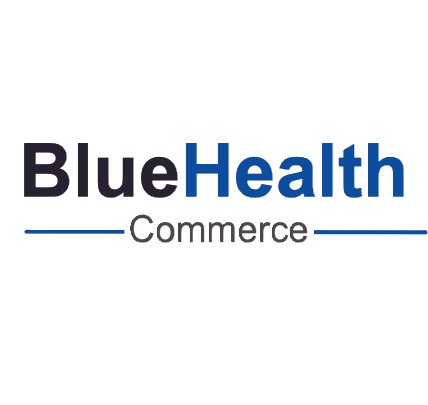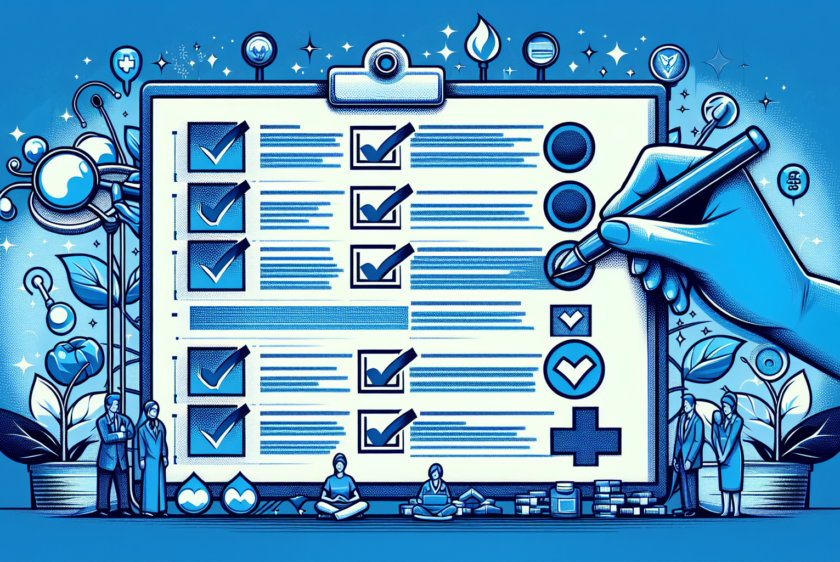Understanding Government Healthcare Supplier Assessment
In the realm of government healthcare procurement, the evaluation of suppliers plays a critical role in ensuring the seamless provision of medical equipment and services. Understanding the importance of assessing suppliers and the overall process employed by government agencies is vital for successful supplier engagement.
Importance of Supplier Assessment Criteria
Supplier assessment criteria serve as the foundation for evaluating the capabilities and suitability of potential suppliers in meeting the healthcare needs of government agencies. These criteria are designed to assess various aspects such as compliance, quality, financial stability, and overall performance. By establishing clear assessment criteria, government agencies can identify suppliers who can consistently meet the demands of the healthcare sector while upholding regulatory standards.
Overview of Government Agency Evaluation Process
Government agencies follow a structured evaluation process to assess and select suppliers for healthcare procurement contracts. This process involves thorough scrutiny of supplier performance against predefined criteria to ensure that only qualified and reliable suppliers are chosen. From evaluating compliance with regulations to assessing delivery performance and customer service, the evaluation process is designed to uphold the highest standards of quality and efficiency in healthcare supply chains.
By delving into the intricacies of government healthcare supplier assessment, agencies can cultivate strong relationships with suppliers that are dedicated to delivering high-quality medical equipment and services. For more insights on supplier evaluation processes, refer to our article on medical equipment supplier evaluation checklist for comprehensive guidance.
Key Components in Supplier Assessment
When evaluating potential medical equipment suppliers, government agencies focus on key components to ensure they engage with reliable partners. These components include compliance with regulations and standards, quality management systems, and financial stability and risk assessment.
Compliance with Regulations and Standards
One of the fundamental aspects of supplier assessment for government healthcare contracts is ensuring compliance with industry regulations and standards. Suppliers must adhere to strict guidelines set by regulatory bodies to guarantee the safety and effectiveness of medical equipment. This includes meeting requirements such as FDA regulations, ISO certifications, and specific industry standards.
| Regulatory Compliance | Description |
|---|---|
| FDA Regulations | Ensures products meet safety and quality standards set by the Food and Drug Administration. |
| ISO Certifications | Demonstrates adherence to international quality management standards. |
| Industry-Specific Standards | Compliance with industry regulations to ensure product efficacy and safety. |
To learn more about the specific regulations and standards that medical equipment suppliers must meet, check out our medical equipment supplier evaluation checklist.
Quality Management Systems
Quality management is paramount in the healthcare sector, and government agencies place significant importance on the quality management systems of their suppliers. Effective quality management ensures consistency, reliability, and adherence to best practices throughout the supply chain. Suppliers with robust quality management systems are better equipped to deliver high-quality products and services consistently.
The table below highlights key components of quality management systems that are essential for government healthcare supplier assessment:
| Quality Management Systems | Description |
|---|---|
| Quality Control Processes | Procedures to monitor and verify the quality of products throughout the manufacturing process. |
| Documented Standard Operating Procedures (SOPs) | Clearly defined processes to ensure consistency and adherence to quality standards. |
| Continuous Improvement Practices | Strategies for enhancing quality, efficiency, and overall performance over time. |
For detailed insights into quality management systems in the context of medical equipment supply, refer to our article on government agency supplier performance criteria.
Financial Stability and Risk Assessment
Financial stability and risk assessment are critical components of supplier evaluation for government healthcare contracts. Government agencies seek suppliers with sound financial standing to ensure reliability and continuity of supply. Assessing the financial stability of suppliers helps mitigate risks associated with disruptions in the supply chain and ensures seamless delivery of medical equipment.
Evaluating the financial stability and risk factors of suppliers involves analyzing financial statements, creditworthiness, and potential vulnerabilities. Suppliers with a strong financial foundation are better equipped to navigate challenges and meet the demands of government healthcare contracts effectively.
To delve deeper into the financial aspects of supplier assessment in the context of medical equipment supply, explore our article on government agency vendor performance evaluation.
Evaluation Criteria for Supplier Performance
When government agencies assess their medical equipment supplier contractors, they rely on specific criteria to ensure optimal performance and service delivery. Three key areas of evaluation include delivery and lead times, product quality and consistency, as well as customer service and support.
Delivery and Lead Times
The timeliness of deliveries and lead times plays a critical role in the efficient operation of healthcare facilities. Government agencies prioritize suppliers who can consistently meet deadlines and ensure that essential medical equipment is delivered on time. Delays in delivery can disrupt healthcare services and impact patient care.
To gauge supplier performance in this area, agencies track metrics such as:
| Delivery Metric | Performance Standard |
|---|---|
| On-time Delivery Rate | 95% or higher |
| Lead Time Adherence | Within the agreed-upon timeframe |
| Expedited Order Handling | Timely processing of urgent orders |
Product Quality and Consistency
The quality and consistency of medical equipment supplied are paramount to ensuring patient safety and the effectiveness of healthcare services. Government agencies evaluate suppliers based on the reliability and performance of the products they deliver. Consistent quality standards must be maintained to meet regulatory requirements and ensure the durability and reliability of the equipment.
When assessing product quality and consistency, agencies look for:
| Quality Criteria | Evaluation Criteria |
|---|---|
| Compliance with Standards | Adherence to relevant regulatory requirements |
| Performance Metrics | Consistent product performance and reliability |
| Warranty and Support | Adequate warranty coverage and post-purchase support |
Customer Service and Support
Effective customer service and support are essential for maintaining a strong supplier-client relationship and addressing any issues promptly. Government agencies value suppliers who prioritize customer satisfaction and offer responsive support services. Clear communication channels and proactive problem-solving strategies contribute to a positive working relationship.
To evaluate customer service and support, agencies consider factors such as:
| Customer Support Aspect | Evaluation Criteria |
|---|---|
| Responsiveness | Timely response to queries and concerns |
| Technical Assistance | Availability of technical support services |
| Issue Resolution | Efficient handling of complaints and corrective actions |
By focusing on these key evaluation criteria for supplier performance, government agencies can ensure that their medical equipment supplier contractors meet the standards necessary to support the delivery of high-quality healthcare services. For a comprehensive checklist on evaluating suppliers, refer to our article on medical equipment supplier evaluation checklist.
Documentation and Reporting Requirements
In the evaluation process of healthcare suppliers by government agencies, documentation and reporting play a vital role in ensuring compliance, quality, and performance. Two key aspects in this regard are regulatory compliance documentation and performance reports with metrics.
Regulatory Compliance Documentation
Government healthcare supplier assessment necessitates meticulous regulatory compliance documentation to verify that suppliers adhere to established regulations and standards. This documentation is crucial for confirming that suppliers meet the necessary legal requirements and uphold the quality and safety standards expected by government agencies.
Ensuring that suppliers provide comprehensive regulatory compliance documentation is essential for establishing a foundation of trust and reliability. By maintaining up-to-date records and documentation that demonstrate compliance with regulations, suppliers can instill confidence in government agencies regarding their commitment to quality and legal requirements.
| Type of Documentation | Description |
|---|---|
| Licensing Certificates | Proof of valid licenses to operate |
| Certifications | Certification of compliance with industry standards |
| Inspection Reports | Reports from regulatory inspections |
| Test Results | Results from quality and safety tests |
| Compliance Statements | Statements affirming adherence to regulations |
Performance Reports and Metrics
Performance reports and metrics serve as quantitative measures to evaluate the effectiveness and efficiency of healthcare suppliers. These reports provide insight into various aspects of supplier performance, enabling government agencies to assess their compliance with service level agreements and contract requirements.
By analyzing performance reports and metrics, government agencies can identify areas of strength and areas needing improvement within a supplier’s operations. This data-driven approach to evaluation enables agencies to make informed decisions based on objective performance indicators.
| Performance Metric | Description |
|---|---|
| On-Time Delivery Rate | Percentage of deliveries made on schedule |
| Error Rate | Percentage of errors or defects in products or services |
| Customer Satisfaction Score | Rating based on feedback and surveys |
| Response Time | Time taken to address issues or inquiries |
| Compliance Rate | Rate of adherence to regulatory requirements |
Incorporating regulatory compliance documentation and performance reports with metrics into the evaluation process ensures transparency, accountability, and effectiveness in assessing government healthcare supplier contractors. By emphasizing the importance of documentation and reporting requirements, government agencies can facilitate a robust evaluation process that leads to successful supplier partnerships.
Ensuring Success in Supplier Assessment
To excel in the evaluation process conducted by government healthcare agencies, suppliers must implement key strategies to ensure success. These strategies include focusing on continuous improvement, fostering strong relationships with government agencies, and maintaining proactive communication for issue resolution.
Continuous Improvement Strategies
Continuous improvement is paramount for suppliers aiming to meet and exceed government healthcare agency standards. By regularly evaluating and enhancing their processes, products, and services, suppliers can demonstrate a commitment to quality and compliance. Implementing quality management systems and maintaining high levels of operational efficiency are essential components of continuous improvement strategies.
Suppliers should also invest in employee training programs to ensure that staff members are well-equipped to adhere to regulatory requirements and deliver exceptional service. By continuously seeking ways to enhance performance and address areas for improvement, suppliers can position themselves as reliable partners for government healthcare agencies.
Relationship Building with Government Agencies
Building strong relationships with government healthcare agencies is vital for suppliers seeking long-term success. Open communication, transparency, and a collaborative approach can help foster trust and cooperation between suppliers and agencies. Establishing clear channels of communication and actively seeking feedback can facilitate the resolution of any issues that may arise during the evaluation process.
Suppliers should strive to understand the specific needs and requirements of government agencies, tailoring their services and offerings to align with agency priorities. By demonstrating a proactive and responsive attitude, suppliers can build credibility and become preferred partners for government healthcare procurement.
Proactive Communication and Issue Resolution
In the realm of government healthcare supplier assessment, proactive communication is key to resolving challenges effectively. Suppliers should maintain open lines of communication with government agencies, providing regular updates on performance metrics, compliance status, and any potential issues that may impact service delivery.
In the event of an issue or discrepancy, suppliers should take a proactive approach to address the problem swiftly and efficiently. By demonstrating responsiveness and a willingness to collaborate on solutions, suppliers can mitigate risks and strengthen their standing with government healthcare agencies. Timely issue resolution is critical to maintaining a positive relationship and ensuring continued success in supplier assessments.
By implementing these strategies, suppliers can enhance their performance, build trust with government healthcare agencies, and navigate the supplier assessment process with confidence and success. Adopting a proactive and continuous improvement mindset is essential for suppliers looking to excel in the competitive landscape of government healthcare procurement. For a detailed checklist on evaluating medical equipment suppliers, refer to our article on medical equipment supplier evaluation checklist.







